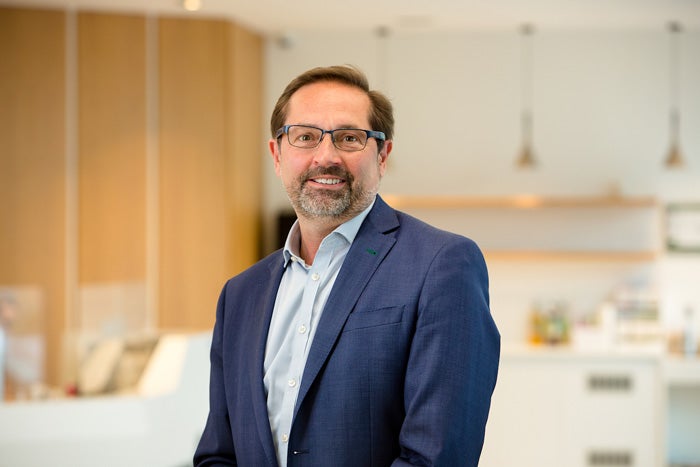Our year in review - Paul Massara

At Sovereign our focus is always on our customers, and we know that the last year has been very challenging for many of them. The highest inflation for a generation has seen food prices and energy prices soaring, alongside rising interest rates and skills shortages. This has had a major impact on those on low incomes and created a challenging environment for businesses.
The tragic case of Awaab Ishak in Rochdale brought to national public attention what can happen when landlords fail in their duties. The coroner’s verdict in that case showed that far too many social housing tenants are living in homes that are not good enough. Upgrading our social housing stock must be a national mission, and at Sovereign we know that as well as improving how we address individual cases of damp and mould we need to address the root causes, home by home, neighbourhood by neighbourhood.
Housing associations exist to deliver over the long term, as well as responding to immediate need. We have an asset management plan that will raise the standards of our homes over the coming decades through understanding the condition of our properties, investing to upgrade to higher safety and sustainability levels and disposing of properties which we anticipate won’t be able to meet our Homes and Place standard.
The last year was challenging on a number of fronts including managing supply chains, recruiting new staff and the financial pressures bought about by inflation and a price cap on rents. But although those headwinds remain you can be assured that the Board is taking a long term approach in its decision making, for the benefit of customers, both of today and the future.
It is in this context that the Board has proposed a merger with Network Homes. Indeed, in part, the case for merger was heavily influenced by the external context. To tackle the challenges we face as businesses and as a sector we need new, innovative and brave solutions. Using the unique strengths of both Sovereign and Network Homes we believe that we can become much more than the sum of our parts, providing more good quality affordable homes and sector-leading services for our customers.
Customer satisfaction levels are not as high as we want this year and we have had to prioritise helping those most in need. This reflects a sector and UK-wide trend, compounded by economic hardship as well as public awareness of health and safety concerns. To support customers in the cost-of-living crisis we created a new Customer Support Fund, providing £1.5m of support with essential items, debt advice, employability coaching and increasing support for those in fuel poverty. We’ve also made it easier to award funds in response to increased demand for grants, benefitting over 50,000 people this year and securing over £1 million in matched funding. Our planned merger doesn’t change our ambitious plans, it accelerates them, and gives us the strength and capacity to create real positive change for our customers, communities and people.
If the merger goes ahead as planned, Sovereign Network Group will have over 80,000 homes, serving over 210,000 customers and will be in the top six housing associations by size, with the aim of being in the top three by development programme. We will be able to invest around £9.2 billion in our existing and new homes, allowing us to create 20% more new homes over the next decade. And we will create a new community foundation, investing £100m in the next 10 years.
None of this would be possible without strong financial foundations. Despite the challenges of the last year, we have achieved an operating surplus of £123.9m and an overall surplus of £66m, money that we can reinvest in new affordable homes and in improving the condition of our existing stock. We’ve built 1,672 new homes this year, of which 94% are affordable. And we’ve invested more this year than last year in our existing homes, £303m compared to £237m last year.
Our total income is up – by £25.4m to £448.2m – mainly due to growing rental income. Our costs have risen dramatically this year as we felt the effect of rising repairs costs and a higher volume of repairs. Our balance sheet remains strong, with an asset base of £4.7bn, and borrowings well within market tolerances.
In my statement in last year’s annual report, I noted a governance downgrade to the second level of regulatory compliance from G1 to G2. This happened in June 2022. We have been working hard on a recovery plan to regain a G1 rating. I am very pleased that in November 2022 the Regulator removed the regulatory notice in relation to historic gaps in our date for building safety in communal areas, which was a key driver in the downgrade decision. Thanks to the efforts of colleagues across the business, but especially in the building safety team, we have put those right. We have been transparent and accountable with the Regulator throughout – who rightly noted the positive and constructive engagement with us. This year we can confidently report strong building safety compliance. The recovery programme is continuing with new ways of working and new datasets. Thanks to the efforts of our colleagues and our good governance the Regulator announced on 28 June that we have returned to the top G1 rated.
The Regulator downgraded the viability of 18 large housing associations, including Sovereign, to the second compliant grade of V2. This reflects the difficult environment and the risk attached to those with significant development programmes, including the more challenging context for banks and other lenders. This is still a compliant grade with which rating agencies and funders are comfortable. However, we are not complacent and will ensure that Sovereign retains robust financial foundations – a central pillar of our objectives without which we cannot deliver on our core social mission.
Paul Massara
Chair
